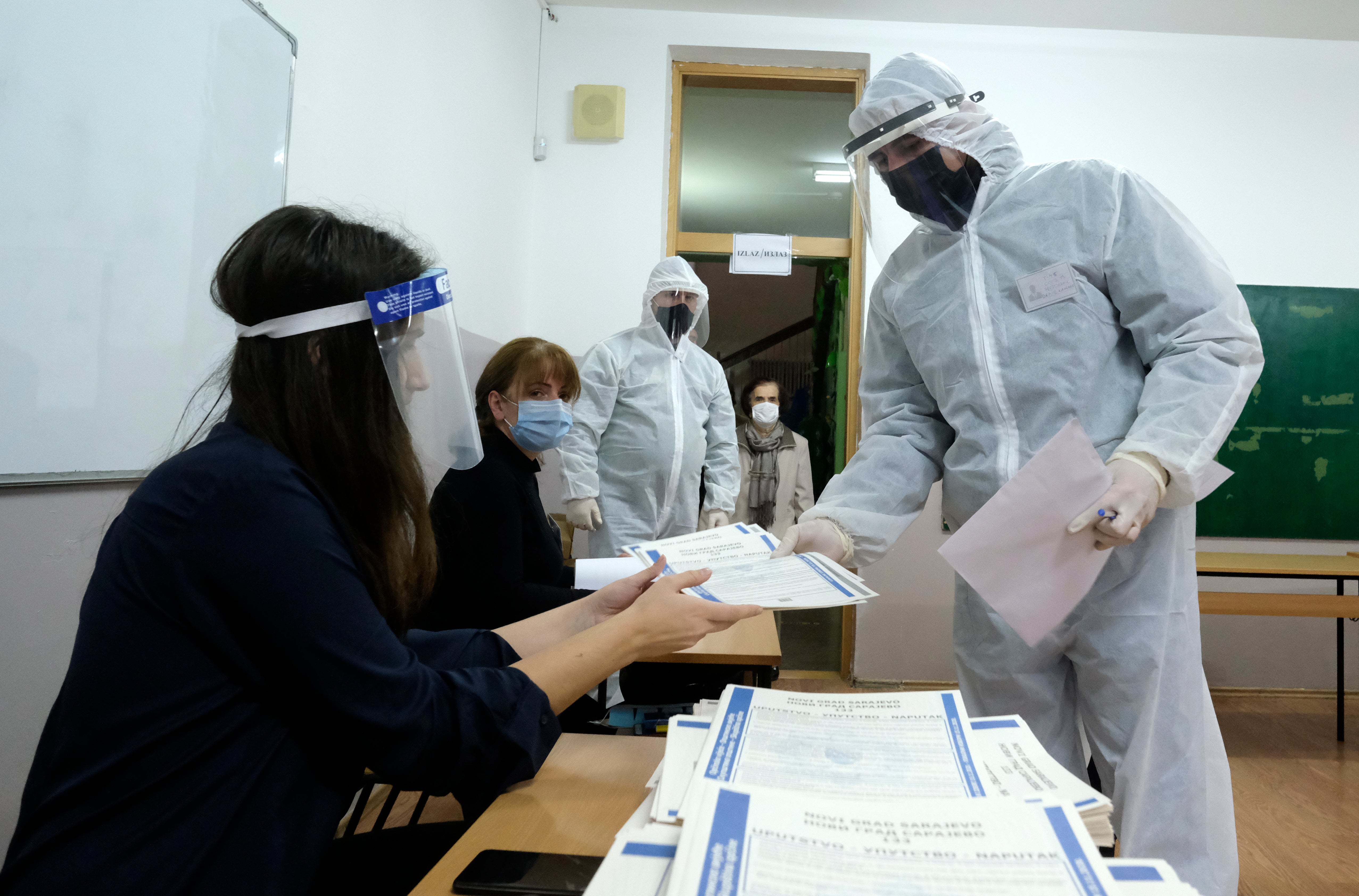Bosnians vote in local elections overshadowed by pandemic
Bosnians voted in nationwide municipal elections amid concerns that the turnout will be hurt by a major surge in coronavirus infections and deaths

Your support helps us to tell the story
From reproductive rights to climate change to Big Tech, The Independent is on the ground when the story is developing. Whether it's investigating the financials of Elon Musk's pro-Trump PAC or producing our latest documentary, 'The A Word', which shines a light on the American women fighting for reproductive rights, we know how important it is to parse out the facts from the messaging.
At such a critical moment in US history, we need reporters on the ground. Your donation allows us to keep sending journalists to speak to both sides of the story.
The Independent is trusted by Americans across the entire political spectrum. And unlike many other quality news outlets, we choose not to lock Americans out of our reporting and analysis with paywalls. We believe quality journalism should be available to everyone, paid for by those who can afford it.
Your support makes all the difference.Bosnians voted Sunday in nationwide municipal elections amid concerns that the turnout will be hurt by a major surge in coronavirus infections and deaths.
Some 3 million people were eligible to vote in the small Balkan nation, which has been uneasily split between its three main ethnic groups — Serbs, Croats and Bosnian Muslims — since the end of the 1992-95 war. Voters were choosing mayors and municipal councils in both of the country’s two semi-autonomous regions — the Serb-run Republika Srpska and the Bosnian Muslim-Croat Federation.
Although the elections are local, many believe they will pave the way for new overall leadership of the ethically split country due to public dissatisfaction with how nationalist and right-wing parties at all levels of government have dealt with the coronavirus pandemic.
Social distancing rules remain, wearing face masks is compulsory in public and voters were instructed to wash their hands and had their temperature taken before voting. Over 170 mobile polling teams were taking ballots to citizens who had been ordered to quarantine after getting infected.
The number of coronavirus cases in Bosnia has been rising sharply in recent weeks, with nearly a third of all infections registered just this month. So far, the country of 3.5 million people has tallied close to 72,000 virus cases and nearly 1,900 deaths, and its death rate continues to rise.
The pandemic has amplified Bosnia’s many problems, including an extreme shortage of doctors and nurses and rampant public corruption. A number of prominent government officials of different ethnic backgrounds are under investigation on suspicion of malfeasance in the procurement of desperately needed medical equipment.
Public resentment over the mishandling of the pandemic is expected to turn voters away from the largest, corruption-prone Bosnian Muslim, Croat and Serb nationalist parties that have dominated the country’s political scene for most of the 25 years since the war.
In Bosnia's largest cities, opposition parties, despite their ideological differences, were closing ranks and campaigning on bread-and-butter issues rather than stoking ethnic tensions. In some cities, including the capital of Sarajevo opposition parties even united with a common platform and jointly fielded candidates.
However, lower voting turnout has historically benefited Bosnia's dominant nationalist parties and the fear of being infected at the polls is likely to keep many voters at home.
First official preliminary results are expected overnight Sunday.
___
Follow AP’s coverage at https://apnews.com/hub/coronavirus-pandemic and https://apnews.com/UnderstandingtheOutbreak